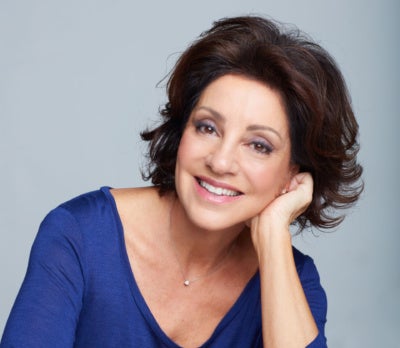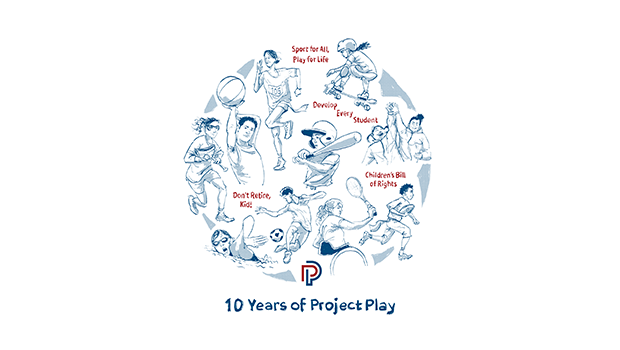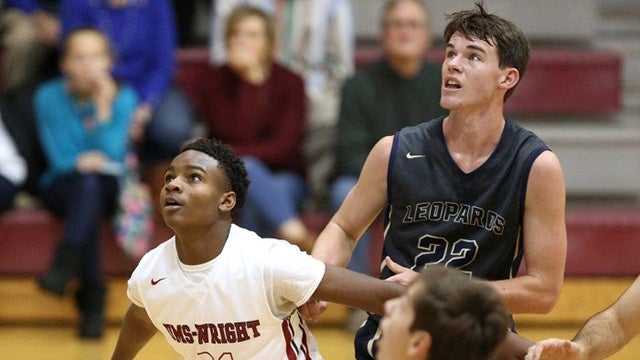 Forty-six former U.S. national team gymnasts competed at UCLA under Valorie Kondos Field, who recently retired as the program’s coach after winning seven NCAA championships. Most of them arrived beaten down physically and emotionally – and tragically, some were sexually abused. UCLA gymnasts described Kondos Field, affectionately known as “Miss Val,” as a healer and a coach who could make the sport fun again.
Forty-six former U.S. national team gymnasts competed at UCLA under Valorie Kondos Field, who recently retired as the program’s coach after winning seven NCAA championships. Most of them arrived beaten down physically and emotionally – and tragically, some were sexually abused. UCLA gymnasts described Kondos Field, affectionately known as “Miss Val,” as a healer and a coach who could make the sport fun again.
The gymnastics community continues to sort through the aftermath of the sexual abuse inflicted by USA Gymnastics team physician Larry Nassar on more than 400 gymnasts. In addition, because the chase for gymnastics gold starts at young ages, the demands placed on early specialization in this sport can result in broken bodies and psyches.
Kondos Field will be a featured speaker at the Project Play Summit on Sept. 17 in Detroit. Jon Solomon, editorial director at the Aspen Institute Sports & Society Program, recently spoke with Kondos Field about possible solutions for gymnastics and her philosophy to coaching. This interview has been edited for length.
Solomon: How does a professional ballet dancer and choreographer become a seven-time NCAA championship gymnastics coach?
Kondos Field: When (UCLA) first asked me to be the head coach, I was flabbergasted and didn’t know anything about gymnastics. They said, “We trust you, you’ll figure it out.” I tried to mimic Bobby Knight and Pat Summit. That failed miserably. I thought, this isn’t going well.
True story: I was in the student union and happened upon Coach (John) Wooden’s book on leadership. The book opened up to his definition of success (“Success is peace of mind that is the direct result of self-satisfaction in knowing you did your best to become the best that you are capable of becoming”). I realized I was trying to be somebody else. I went back to my office and scrapped everything I was doing. I hired really good people to coach the gymnastics part. I started staying true to myself. And most importantly, I had to figure out my why? Why was I going to be coaching? I didn’t grow up in athletics and didn’t believe in win at all costs. It was very clear that athletics was one of the greatest ways to learn life lessons.
Solomon: Did you play sports growing up?
Kondos Field: I was really, really good at tetherball. I was the tallest kid, so I was the tetherball champion.
Solomon: You’ve seen so many former national team gymnasts come to you with physical and emotional pain. What does that pain look like by that stage in college?
Kondos Field: The sad part I realized in coaching all these elite athletes is they had been under a lot of emotional and verbal abuse growing up – just denigrated and talked down to and demeaned, so they would be robotic and compliant. I think the worst pain came from losing their voice. And not just losing their ability to speak, but literally having no voice inside that was cognizant and resonating with them.
I can tell you so many stories when I asked them, “What do you think we should do in the gym today?” They would come back with this blank stare. They didn’t even know how to tap into their inner voice. I always felt that was the biggest tragedy.
Solomon: Was it only the national team gymnasts who usually experienced this pain, or did other gymnasts encounter this as well?
Kondos Field: I noticed a very clear pattern. The level below elite national teamers is Level 10. Most college teams are filled with Level 10s. You don’t see emotional damages from Level 10s as with the others. The Level 10s have an opinion, they have a voice. It’s the elites that are just paralyzed and petrified. I remember one of our elites, a year after graduating, said that when I asked her questions, she thought it was a test and wouldn’t answer for fear of being wrong.
Solomon: You wrote a powerful piece in 2018 in which you said Larry Nassar is not the head of the monster, but rather the monster is the culture of USA Gymnastics. What do you mean by that?
Kondos Field: Everybody wonders how over 400 girls were sexually abused. In my opinion, USA Gymnastics only cared about winning and medals. And the coach, Martha Karolyi, and her husband (Bela), had a proven track record of winning. When the almighty dollar gets involved, you start to see a shift in the moral compass. USA Gymnastics gave 100% autonomy to the Karolyis. They did not want anyone questioning them. You never, ever question Martha. …
When I was in London standing next to (former USA Gymnastics CEO) Steve Penny, I asked, “Why did you let Martha get away with emotional abuse?” He barely even glanced at me. He said because she wins. I said at what cost? And he didn’t answer. When people say we’ve been successful, I beg to differ. We’ve won medals, but we’ve failed.
Solomon: How do you think USA Gymnastics and the U.S. Olympic and Paralympic Committee have lately handled reform efforts?
Kondos Field: I think they’re doing a really great job. I do think they’re putting too much on (the U.S. Center for) SafeSport that people will report abuse, and that’s not the case. I feel the one, big missing piece is no one from USA Gymnastics has ever reached out to the victims. They say they can’t because of litigation, but every attorney I’ve talked to says they can reach out and say, “We’re family, we’re so sorry what you’ve gone through, and we hope to resolve this soon.” They haven’t even said that, so there’s a big divide.
Solomon: Do we need to have a conversation in America about changing the funding structure and at what age to introduce national championships into gymnastics? Could USA Gymnastics basically shift its paradigm in a way that deemphasizes national championships and sorting the weak from the strong?
Kondos Field: The issue I have with gymnastics in this country is there really isn’t a path for kids that really love the sport and that weren’t born with the ideal body to be elite. Gymnastics is about physics. You can’t do it if you’re not born with a lean, small body. But for the child that’s a little bit thicker and possibly overweight but loves the sport, I would love to see a program developed nationally where they can compete and have fun without putting all the pressure on having to win or be Simone Biles or be skinny. They shouldn’t be ashamed to be in a leotard. Sadly, the closest thing to a program like that is the Special Olympics, and we celebrate that. We can’t celebrate that same feeling for all children who weren’t born with the genetics of being a gymnast.
Solomon: Is there a role for USA Gymnastics leading the way on that?
Kondos Field: I definitely think there’s a role. It’s what Project Play does. Develop a system where you’re not trying to make the national team, you’re enjoying yourself. It takes a real challenging individual to be proficient on all four events. Allow kids to flip events and perform.
Solomon: Could gymnastics hold off on national championships and tiering of elite gymnasts?
Kondos Field: The problem with gymnastics is in order to be a great gymnast, you’ve got to learn really, really tough skills at a very young age. You have to learn when your body is nimble and light and before you inherit fear and your brain is smart enough to realize you’re doing some serious stuff here. There is a double-edged sword with that. It’s such a tragedy that your body is shattered by age 18 or 19 if you’re an elite gymnast, but you have to put in the time for the skills. …
Part of what I’d like to see reversed is let’s see gymnasts compete on teams at younger ages. College is the only time gymnasts ever really feel the rewards of being part of something greater than themselves. It’s such a true, team sport that if we could offer it at a much younger age, I think that would help the sport and those athletes who aren’t the biggest superstars. I hate it when I’m signing autographs for a little girl and the mom says the daughter just won her meet on balance beam. I want to look at the mom and say, “I don’t care.” Instead, I look at the girl and say, “What was the most fun part of competing?”
Solomon: Can the U.S. produce a gold medal Olympic team in which there is no physical and emotional abuse? Is that even possible?
Kondos Field: Yes, all you have to do is treat them and respect them as human beings. Any athlete with that kind of talent and heart of a champion, they want to be challenged, they want to compete. But they don’t want to be demeaned. What gymnastics doesn’t do at that level is you don’t celebrate failure as something to learn from.
Learn more about Project Play at ProjectPlay.us. Register to attend the Project Play Summit in Detroit (Sept. 17-18) at as.pn/2019PPSummit.

